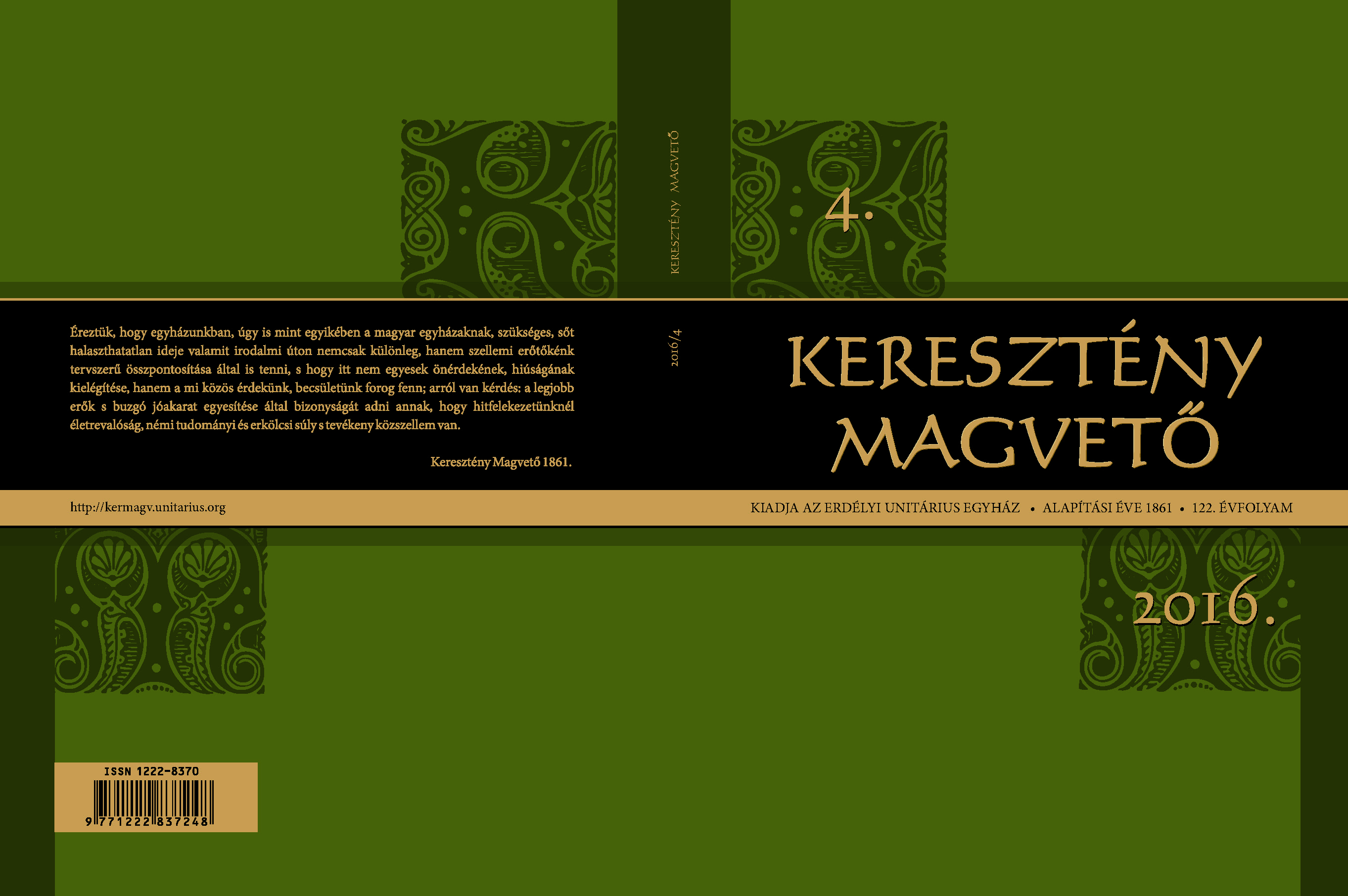Nemzetközi együttműködés az Unitárius Univerzalista Tanács megalakításában. III. (Fordította és átdolgozta Gyerő Dávid)
Ménage á Trois: The UUA, GAUFCC and IARF and the Birth of the ICUU. III. (Translated and revised by Dávid Gyerő)
Author(s): Mark Morrison-ReedContributor(s): Dávid Gyerő (Translator)
Subject(s): History, Recent History (1900 till today)
Published by: Erdélyi Unitárius Egyház
Keywords: ICUU; UUA; Burundi; Cuba; Hungarian Unitarian Church; intercultural relations; members; Philippines; programs; Rebecca Sienes; Romania; Uganda
Summary/Abstract: This is the 3rd and final part of the paper presenting the relationship between ICUU and other Unitarian and Universalist organizations – but mainly the UUA. It focuses on the more recent past: how ICUU officers were elected and how financial funding worked and works. Since 1995, the founding year of the ICUU, its membership increased, from 14 to 22 full and provisional member groups, and so too did the number and kind of programs it offers. The events from the recent past show how the ICUU began to consciously serve the needs of non-American Unitarian Universalist and Unitarian associations. The major geo-political changes left their imprint on the ICUU too: for example the overthrow of Romanian dictator Ceauşescu led to a less hierarchical church structure. Hungary joined the European Union in 2004 and Romania in 2007, which led to the birth of a common Hungarian Unitarian Church. Countries where previously Unitarianism did not exist at all, like Uganda, Burundi and Cuba, demanded the ICUU’s support. The many culturally different ICUU members prominently raised the question of how to nurture right relations. The ICUU tries to realize the principle put down in words by Rebecca Sienes from the Philippines: “When strangers meet, endless possibilities emerge.”
Journal: KERESZTÉNY MAGVETŐ
- Issue Year: 122/2016
- Issue No: 4
- Page Range: 367-389
- Page Count: 23
- Language: Hungarian

